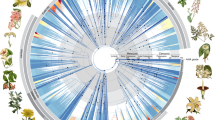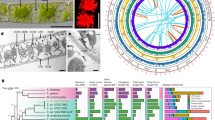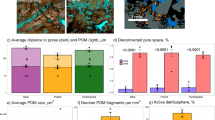Abstract
EARLY in 1951, Mount Lamington in New Guinea erupted violently, and the resulting shower of hot ashes which followed the explosion devastated many miles of the countryside, causing severe damage and loss of life. Very soon after the eruption, Mr. G. A. Taylor, volcanologist stationed in New Guinea, visited the area, and in the course of his investigations found large patches of a pink fungus which he collected and sent for identification. The fungus was readily isolated and proved to be a heterothallic species of Neurospora, which has been provisionally identified as N. crassa (Shear and Dodge). The genus Neurospora is well known as a troublesome pest of bakeries and similar high-temperature situations. The ascospores of this genus do not germinate readily unless subjected for a brief period to high temperatures (for example, 1 hr. at 60° C.). Its occurrence, therefore, in the Mount Lamington area, while not at all surprising to mycologists, is an interesting example of the invasion of an unusual ecological niche.
This is a preview of subscription content, access via your institution
Access options
Subscribe to this journal
Receive 51 print issues and online access
$199.00 per year
only $3.90 per issue
Buy this article
- Purchase on Springer Link
- Instant access to full article PDF
Prices may be subject to local taxes which are calculated during checkout
Similar content being viewed by others
Author information
Authors and Affiliations
Rights and permissions
About this article
Cite this article
BURGES, A., CHALMERS, B. Neurospora following a Volcanic Eruption. Nature 170, 459–460 (1952). https://doi.org/10.1038/170459b0
Issue Date:
DOI: https://doi.org/10.1038/170459b0
Comments
By submitting a comment you agree to abide by our Terms and Community Guidelines. If you find something abusive or that does not comply with our terms or guidelines please flag it as inappropriate.



